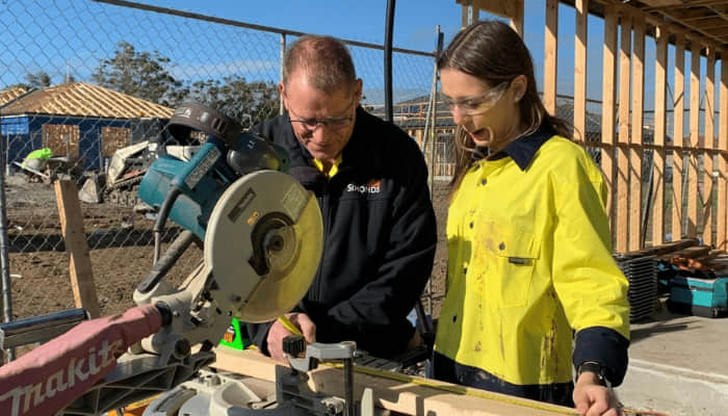How To Become a Carpenter in 4 Steps
Carpenters play a crucial role in construction projects, handling a wide range of tasks from building and installing to repairing various structures using wood and other materials. If you're considering a career as a carpenter, it's important to understand what it entails and whether it aligns with your interests and skills.
To pursue a career as a carpenter, certain prerequisites must be met. Here are the key steps typically involved in becoming a carpenter:

1.Achieve a High School Diploma
Securing a high school diploma or equivalent is often the first step towards becoming a carpenter. Whether through traditional schooling or a GED program, this foundational education is crucial for entry into apprenticeship programs. High school students interested in carpentry can kickstart their journey by enrolling in courses related to the field, such as carpentry, drafting, and mathematics. These classes provide a solid foundation and familiarize students with essential techniques and terminology that will prove invaluable during apprenticeships and advanced carpentry training. Some apprenticeship programs even offer the opportunity for students to gain hands-on experience alongside seasoned carpenters while they continue working towards their diplomas.

2.Successfully Complete an Apprenticeship
Embarking on an apprenticeship is a pivotal step in your journey to becoming a skilled carpenter. These programs are typically offered by commercial and industrial employers or construction unions, spanning approximately three to four years. Throughout this period, apprentices work under the guidance of seasoned carpenters and other construction professionals. During the initial stages of your apprenticeship, you'll delve into careerdamental topics such as safety protocols, freehand sketching, mathematics, first aid, and blueprint reading. These foundational skills lay the groundwork for your practical carpentry training. As you progress, you'll transition to hands-on learning, gaining expertise in diverse carpentry techniques including rough framing, form building, layout, and both interior and exterior finishing.
Upon successful completion of your apprenticeship, you'll earn certification as a journeyman carpenter. At this stage, you have the option to further hone your carpentry prowess by pursuing additional certifications, enrolling in trade school, or exploring other avenues for vocational training in carpentry.
3.Explore Further Carpentry Education
While formal carpentry programs at colleges or technical schools are not mandatory for aspiring carpenters, they can significantly boost your skill set and set you apart from other candidates in the field. Considering these programs could be a wise investment in your career advancement. Some apprenticeship programs may even offer the opportunity to earn course credits towards an associate's degree, making it a seamless transition into further education. If you opt for additional learning, you can expect to delve deeper into specialized areas such as carpentry math, roofing techniques, stair construction, building layouts, foundation work, siding installation, and molding techniques.
Obtaining an associate's degree or certification in carpentry can potentially elevate your earning potential, as it positions you for higher-level roles within the industry right from the start. By expanding your knowledge and credentials, you'll be better equipped to thrive in the dynamic field of carpentry.

4.Hone Your Marketable Skills
In the carpentry field, specialization can be key to standing out and thriving in your career. Consider focusing on areas such as renovation, infrastructure, cabinet making, or roofing to carve out a niche for yourself and effectively market your expertise in the workplace. Another avenue to explore is learning an additional language that's commonly spoken in your geographical area. Being bilingual can significantly enhance your appeal to potential employers, as it expands your ability to communicate and collaborate with a broader range of clients and colleagues. This linguistic versatility may even boost your chances of securing interviews and landing coveted carpentry opportunities.
